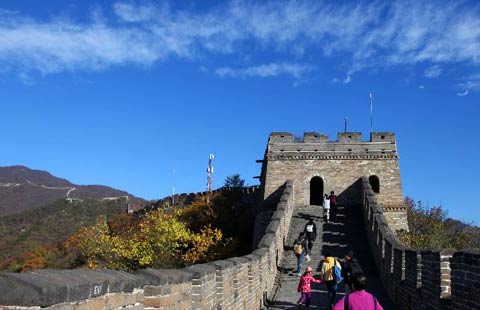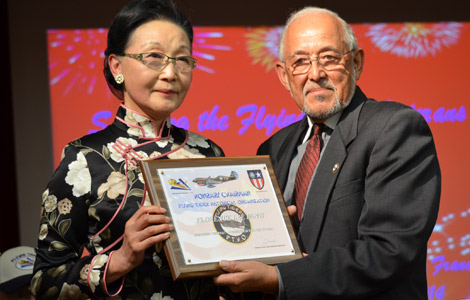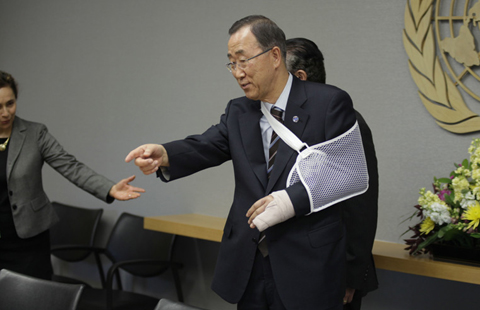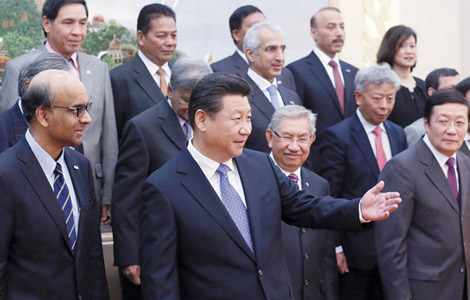LatAm turns to China for security projects
Updated: 2014-10-25 22:23
By ZHANG FAN in Sao Paulo(China Daily USA)
|
||||||||
China's ties with Latin American countries have expanded from trade to security cooperation as China National Electronics Import and Export Corp (CEIEC) helps countries build national security control centers.
"We can say now, very proudly, that Ecuador is one of the most secure countries in Latin America," Ecuadorian President Rafael Vicente Correa Delgado said recently.
CEIEC, a state-owned company that specializes in engineering and defense electronics, built a security system for Ecuador, known as ECU-911, that includes two national and five regional centers and eight provincial command and control centers.
The project, initiated in 2011, brings together seven security departments, including police, transportation, fire control and medical treatment, to improve rescue operations in short reaction time.
The system has helped decrease Ecuador's crime rate in by 24 percent, making it the fourth most secure Latin American country. According to CEIEC data, the system has handled 34 million emergency cases and saved more than 8,000 lives.
The results helped CEIEC win a second contract from Ecuador last April for another project, costing $42.69 million.
"The second project will work with the first one and provide security services for 14 million people across the country," Wang Fei, head of CEIEC's Ecuador branch office, told People's Daily recently.
CEIEC also signed contracts with Venezuela and Bolivia last year in Beijing to build public and information security networks.
Russian media reported in April that Venezuelan company Veximca CA also signed an agreement with CEIEC to import 26 radar and 11 control stations. No further details were given.
Gilmar Masiero, a professor with the Asian Studies program at the University of Sao Paulo, said Latin American countries need to improve their security and doing so with China is one of the better choices.
"There is a strong pressure for Brazil, Argentina and Venezuela to face their security problems," said Masiero, "I think to have a common security agenda for South America is important. According to my sources, these countries are discussing the issue at the Union of South American Nations."
China's increasing participation in Latin America has aroused concern among some countries that have traditionally played a significant role, especially the United States.
Forbes.com, an American business website owned by Forbes Inc, recently published a story saying that the US is losing its influence in Latin America to China.
"Time is running out. China has quickly become the largest trading partner for many South American nations and Chinese trade deals are much more amenable to Latin Americans," the article quoted America's Quarterly, published by the Council of Americas.
"This kind of article was more common as soon as China became a member of the World Trade Organisation(WTO). Though trade and investment by China in this region did skyrocket in the past 14 years, the amount is still too small to cause worries for the US or Europe," said Maiero.
The US remains Latin America's largest trade partner with $850 billion in 2013, and China had $244 billion in 2012, according to WTO data.
"Though the growth rate of China in the region is significant, and the fields are more diversified, there is still a gap between China and the US, even the European countries. China is still new in Latin America and large challenges remain for all these companies," said Zhou Xinyu, a researcher at Beijing Foreign Studies University.
fanzhang@chinadailyusa.com

 Beijingers see blue sky again after smoggy days
Beijingers see blue sky again after smoggy days
 9th Rome Film Festival kicks off
9th Rome Film Festival kicks off
 Highlights of China Fashion Week
Highlights of China Fashion Week
 Remembrance of Flying Tigers & WWII Veterans
Remembrance of Flying Tigers & WWII Veterans
 Lang Lang plays at the UN Day concert
Lang Lang plays at the UN Day concert
 Politicians don't let minor injuries stop them
Politicians don't let minor injuries stop them
 Concert with Chinese pianist helps UN celebrate anniversary
Concert with Chinese pianist helps UN celebrate anniversary
 Accord reached on key bank
Accord reached on key bank
Most Viewed
Editor's Picks

|

|

|

|

|

|
Today's Top News
Asia, LatAm to lead air travel by 2034
China's growing role in Mexico not a threat to US
Improving air quality as 'priority'
The road goes on for teacher Levine
Redesigned SAT not brainwashed
Police step up efforts against smugglers
Stricter border check for terrorists
China mulls military spending efficiency
US Weekly

|

|







